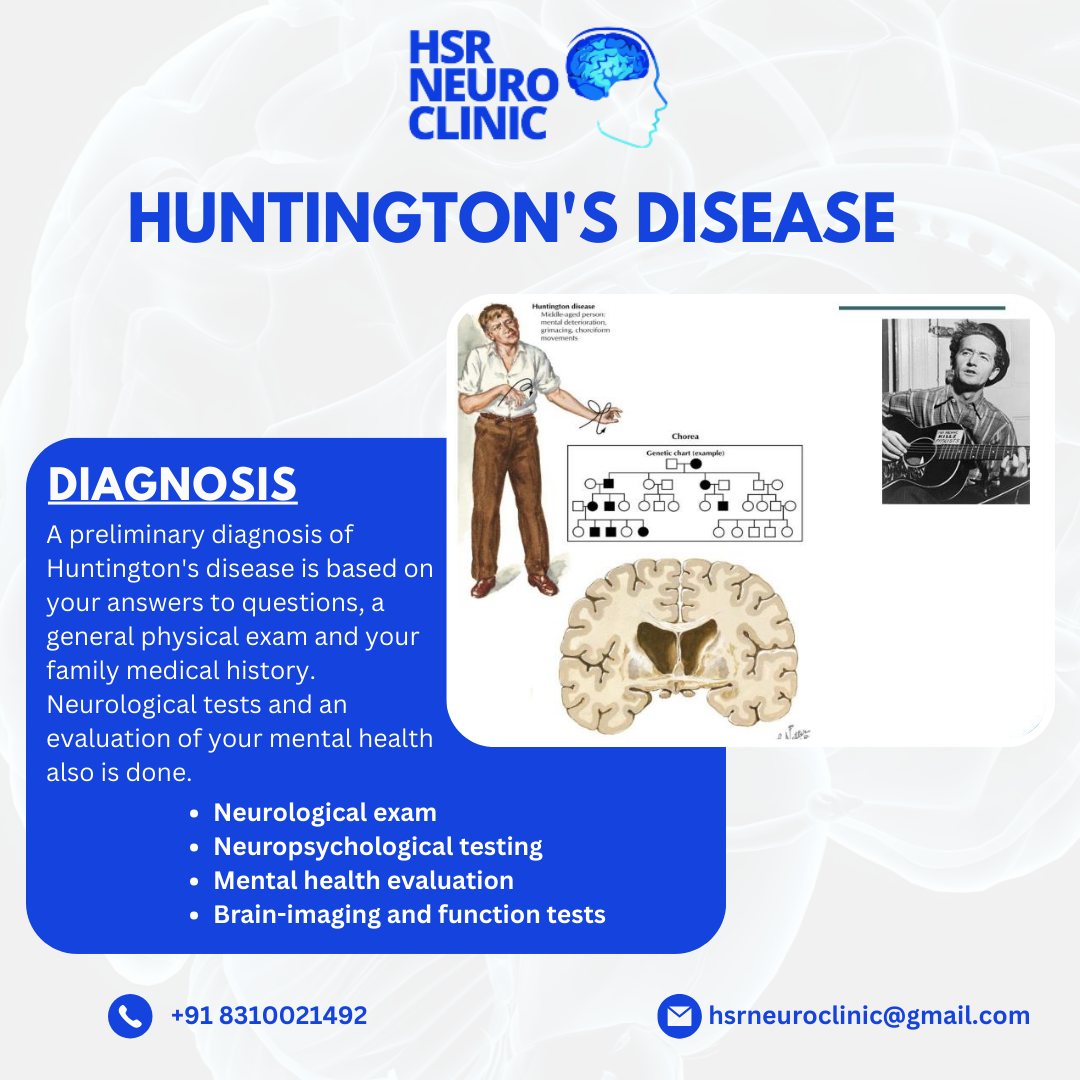+918048034088

This is your website preview.
Currently it only shows your basic business info. Start adding relevant business details such as description, images and products or services to gain your customers attention by using Boost 360 android app / iOS App / web portal.
Diagnosing Huntington’s disease typically involves...

Diagnosing Huntington’s disease typically involves a combination of medical history, neurological exams, psychiatric evaluations, and genetic testing. Here’s an overview of the diagnostic process: 1. Medical and Family History Family History Review: Since Huntington's is genetic, doctors inquire about family members with similar symptoms. Symptom History: Details about when symptoms began and how they have progressed. 2. Neurological Examination Movement Tests: Assessment of reflexes, coordination, balance, and motor skills to detect abnormal movements like chorea. Cognitive Testing: Evaluates memory, problem-solving abilities, and mental flexibility. Sensory and Motor Function Tests: Looks for any muscle weakness or sensory loss. 3. Psychiatric Evaluation Behavioral Assessment: Examines mood, emotional state, and any mental health issues such as depression, anxiety, or obsessive-compulsive behaviors. 4. Genetic Testing Blood Test: A genetic test can confirm a diagnosis by identifying the specific mutation (CAG repeat expansion in the HTT gene) responsible for Huntington’s disease. Predictive Testing: For people with a family history of Huntington's, genetic testing can determine if they carry the mutation, even before symptoms appear. This testing requires counseling to discuss the potential psychological impact. 5. Imaging Tests MRI or CT Scans: While they don’t diagnose Huntington’s directly, imaging can show structural brain changes (such as shrinkage in certain areas) common in the disease. These changes typically appear in the later stages of the disease. #huntington #huntintondisease #diagnosis #neurology #dradvaitkulkarni #hsrneuroclinic #hsrlayout #neuroclinic #bengaluru

